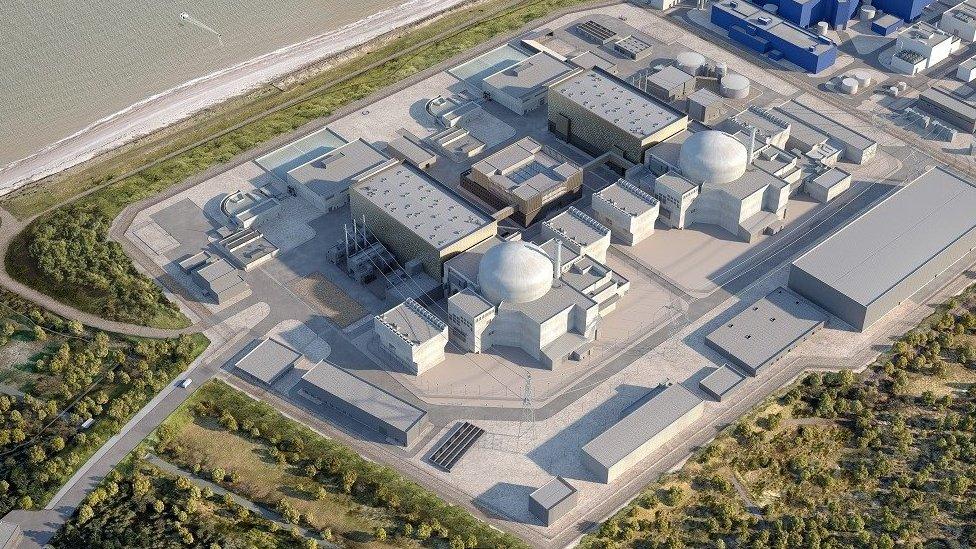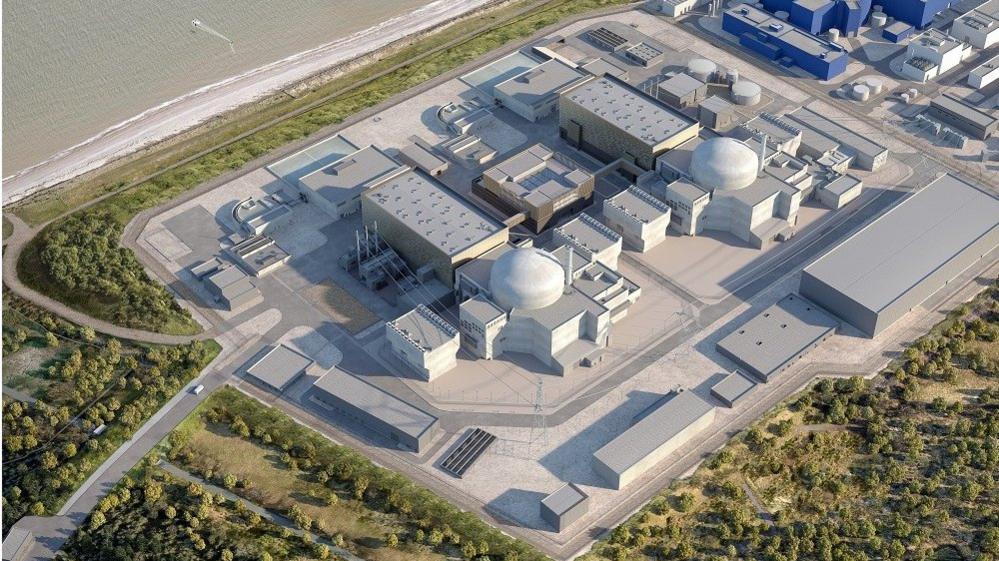Approval of Sizewell C nuclear plant was 'lawful', High Court rules
- Published

An artist's impression of the planned nuclear plant - Sizewell C - which is expected to cost about £20bn
Britain's approval of the planned Sizewell C nuclear plant was lawful, the High Court has ruled.
Campaign group, Together Against Sizewell C, argued that the government had failed to assess the environmental impact of the Suffolk project.
But Judge David Holgate dismissed their challenge in a 47-page written ruling.
He said there was "nothing artificial or unlawfully limiting" about a policy aimed at providing a mix of solar, wind and nuclear power.
At a hearing in March, lawyers for the group of local residents said the government had not considered "alternative solutions" to meeting its energy and climate change objectives, as well as the impact of providing an "essential" water supply to the project.
The government, supporting the project with a £700m stake, argued that it made "legitimate planning judgments" and that the campaigners' bid was "unarguable".
Mr Justice Holgate said several parts of the challenge were "totally without merit".
"The claimant's argument depends upon an illegitimate attempt to rewrite the government's policy aims by pretending that the central policy objective is at a higher level of abstraction, namely to produce clean energy, without any regard to diversity of energy sources and security of supply," he ruled.
"But it is not the role of a claimant, or of the court, to rewrite government policy, or to airbrush objectives of that policy which are plainly of 'central' or 'core' or 'essential' importance."
Mr Justice Holgate also found the approach to the water supply, which would be dealt with under a separate process, was lawful.

Grant Shapps visited the Suffolk coast to mark the signing of contracts for the government's investment in Sizewell C
French energy giant EDF, due to develop the project, previously said Sizewell C is expected to generate low-carbon electricity to supply six million homes.
Ministers previously said the project would create 10,000 highly skilled jobs, with its go-ahead being welcomed by unions and the nuclear industry.
During the two-day hearing in London, lawyers for the campaigners also argued the Government irrationally concluded the power station site would be clear of nuclear material by 2140, when rising sea levels and storm surges could flood the site before it has been decontaminated.
However, Mr Justice Holgate said: "It is obvious that the issue of how far into the next century spent fuel will need to remain at Sizewell C is subject to uncertainty.
"On any fair reading of the panel's report and the decision letter, that uncertainty was recognised."
Together Against Sizewell C has been ordered to pay £10,000 towards the Department for Energy Security and Net Zero's costs.

Find BBC News: East of England on Facebook, external and Instagram, external. If you have a story suggestion email eastofenglandnews@bbc.co.uk or get in touch via WhatsApp on 0800 169 1830
Related topics
- Published29 November 2022

- Published2 November 2023
